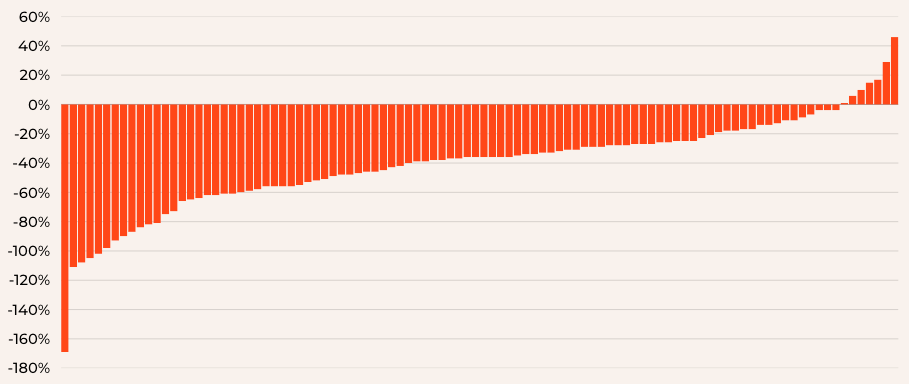Report: The impact of AI Overviews in the cultural sector
What Google’s AI-powered search means for visibility, traffic and audiences in the UK arts and culture sector.
A big change in search
AI Overviews first appeared in UK search results in August 2024. In March 2025, Google expanded them to cover queries in entertainment, restaurants, and travel, bringing many cultural searches into scope.
Since then, Google’s AI Overviews have started to change the way people find and engage with information.
These AI-generated summaries sit right at the top of results, pulling together information from multiple sources and answering questions instantly. They often give people what they need without ever needing to visit a website.
Our clients have started to ask: what does this mean for us, and how do we compare to other arts and culture organisations?
So, we analysed search performance for 100 UK cultural organisations, covering museums, theatres, heritage sites, galleries, and more. The results are in our new report.
Here are the headlines…
Why search still matters for cultural organisations
For most cultural organisations, search engines drive 40–60% of all website traffic. It’s where audiences go to discover your content and how they find you when they’re ready to interact - whether that’s through buying a ticket, planning a visit, becoming a volunteer, supporting your causes, or something else.
So what do AI Overviews mean for the cultural sector, and what should we do about it?
To find out, we analysed search traffic data from 100 UK cultural organisations, comparing January–July 2025 with the same period in 2024.
What we found
Our research uncovered an unprecedented reversal in search performance:
Organic traffic is down 10% in early 2025 compared to the same period in 2024. On the surface, that may not sound bad, but search traffic rose 30% in 2024. That’s a 40-point swing in the wrong direction.
80% of organisations have seen decreases in search traffic. Of those that have increased their traffic from Google, most have done so at a much slower rate than last year.
Informational content has been hit hardest. Visitor information, beginner-level articles, glossaries, and even online collections are seeing fewer clicks. Transactional content has held up better, so organisations that mostly care about their event and exhibition pages might not be feeling the effect yet.
Visibility varies. On average, organisations appear in only 6% of relevant AI Overviews. Top performers are achieving 13% and they tend to have stronger SEO foundations in place.
2024 seems to have been quite a good year for cultural organisations as far as traffic from Google is concerned. But that's flipped around in 2025.
This chart shows the % change in search traffic performance in the first half of 2025 compared to the same period in 2024.
Pretty much all of the organisations in our study are feeling the effect.
What’s more, the few that are managing to swim upstream are only doing so either because they happened to perform poorly in 2024 and are bouncing back, or they have a significant anniversary this year and are attracting additional attention.
At the same time, Google tells us that people are using their search engine more than ever. In their July ‘25 earnings call they said:
Overall queries and commercial queries on Search continued to grow year-over-year. And our new AI experiences significantly contributed to this increase in usage.
This would go some way to explaining what’s being called the ‘crocodile mouth effect’. Looking in Google Search Console, we see that some organisations are seeing their visibility in search results increasing, while clicks are decreasing.
Download the full report
What you’ve read here is just a snapshot of what we uncovered. The full report goes deeper, with:
A sector-wide view of how search traffic is shifting across 100 UK arts and culture organisations.
Charts that set out the scale of what’s happening.
Suggestions for steps you can take now to strengthen your visibility and adapt for the future.
To get the report, enter your details here.


